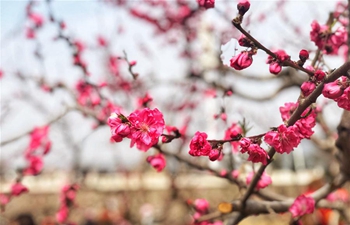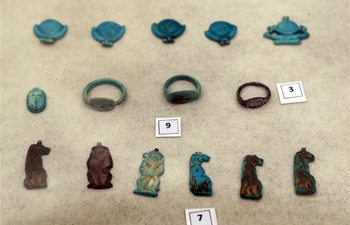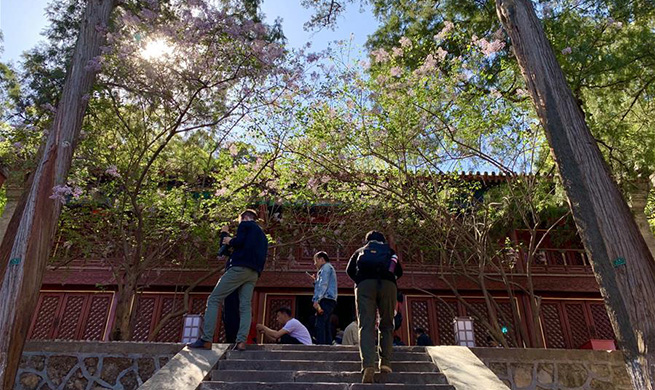BEIJING, April 15 (Xinhua) -- Beijing's spring season comes again with unruly companions of airbone cotton known as catkins, from willow and poplar trees, and the gardening authority is trying to tackle them.
The Beijing Gardening and Greening Bureau said it had stepped up efforts to curb the cotton-like seed clusters in key areas such as hospitals, kindergartens, schools, city parks and large residential areas.
Beijing has 284,000 female willow and poplar trees, the main source of the flying catkins. About 37 percent of the trees are in Chaoyang District.
With high survival rates, fast growth and low maintenance costs, poplars and willows were used as landscaping trees in Beijing, but flying catkins are a nuisance for the city and a fire hazard.
Workers use high-pressure water guns to wash the cotton balls, and clip branches off high trees to prevent them from producing catkins.
This year, they will not be using catkin inhibitors, because they do not work well, the bureau said.
Grasslands are added to keep the flying cotton balls on the ground. Beijing will ban the plantation of female poplars and willows in the future and increase the diversity of landscaping trees.
Zhang Jianguo, a researcher with Chinese Academy of Forestry, warned that though the trees produce annoying seeds, they can not be felled.
Beijing's female poplars and willows were planted in the 1960s and 1970s, when there were few tree options for landscaping.
















